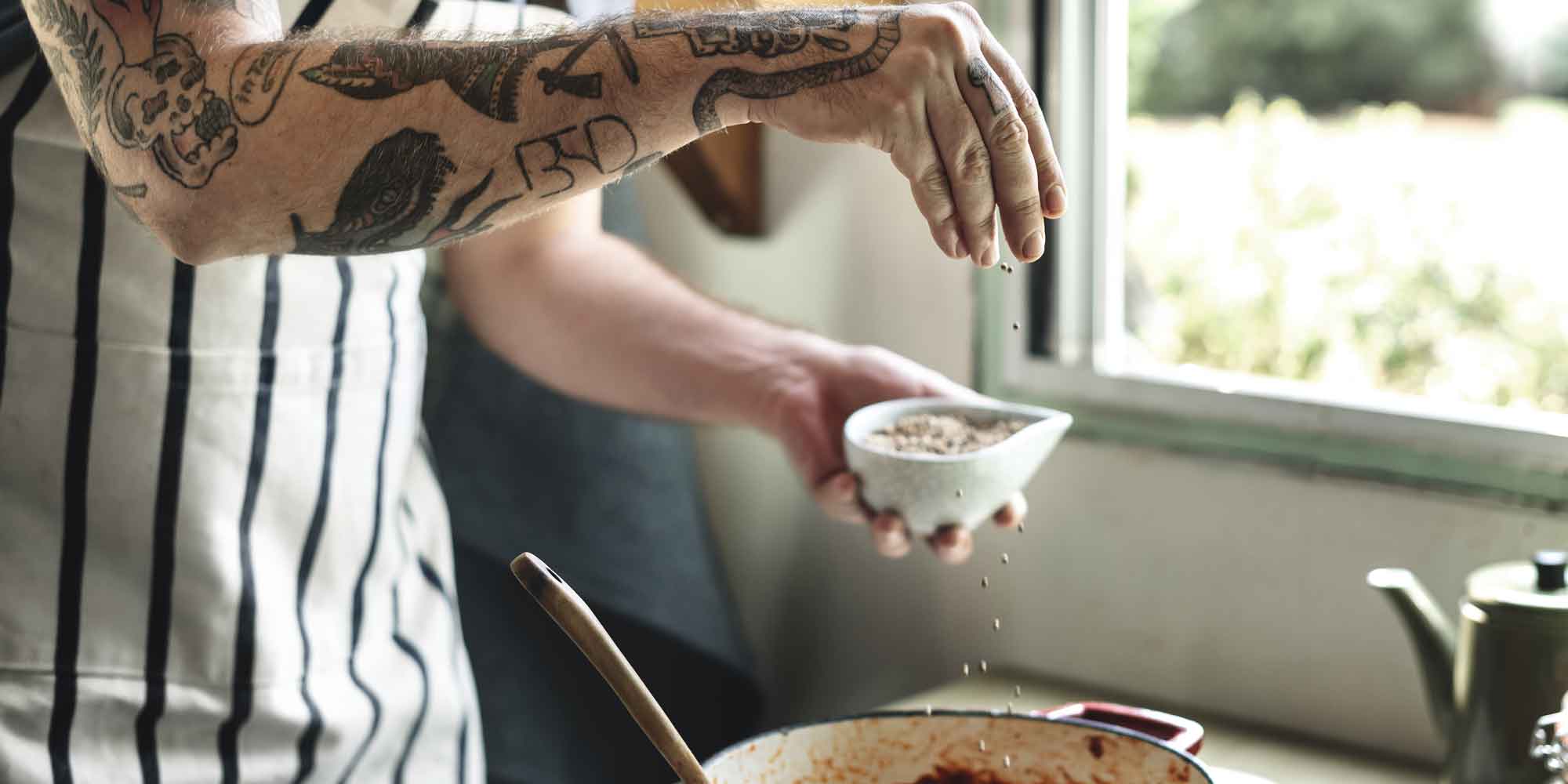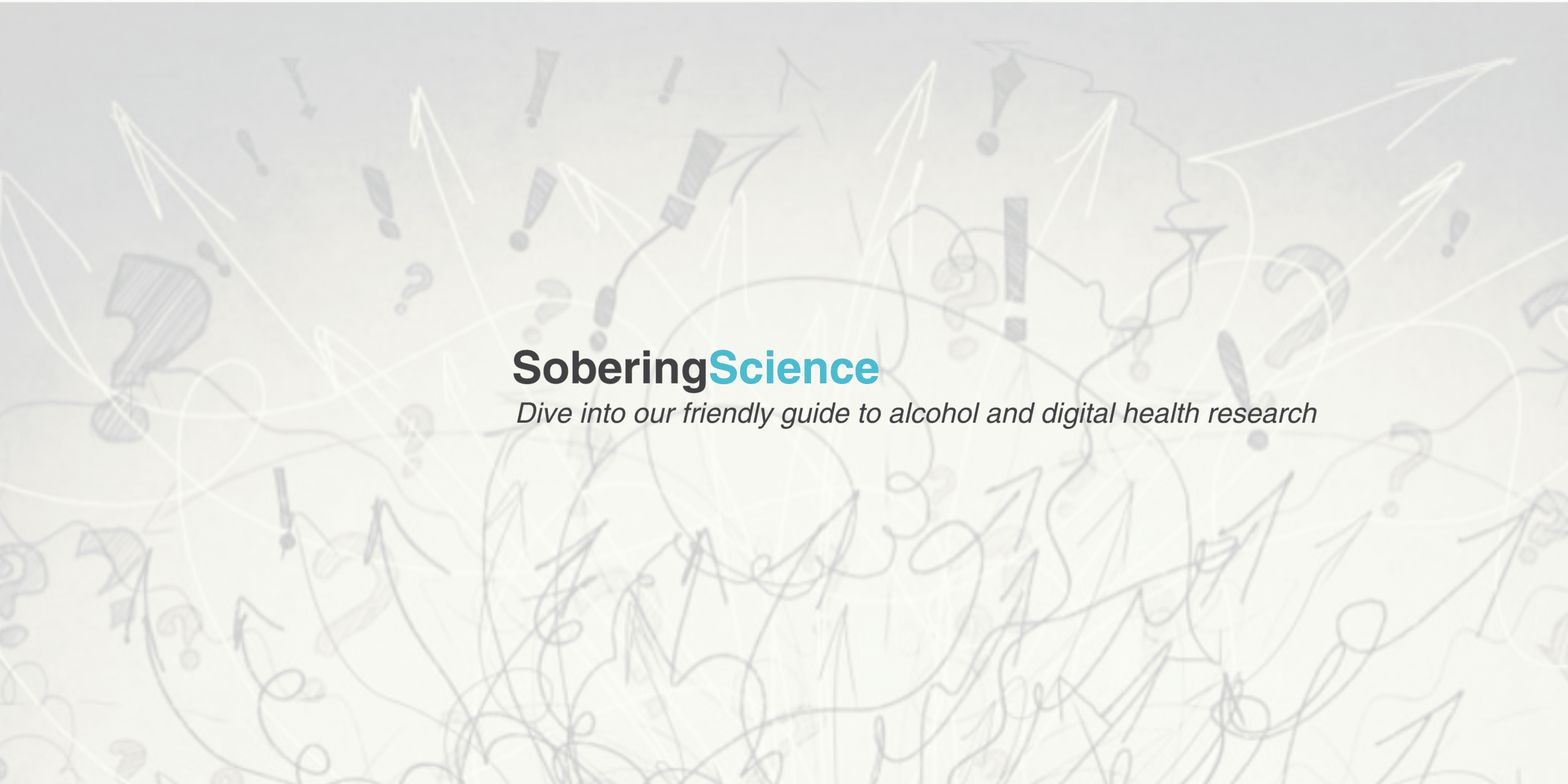
Alcohol in food – Does this break a sober streak?
We've heard this mentioned many times before – ‘alcohol burns off in heat’. But just how much retention does it have on, let’s say, a stir-fry meal? Is a certain method of cooking more effective than others, to burn off ethanol? How do we know if the alcohol is completely gone on the food we serve to our friends who don’t drink? Does it break our sober streak if we eat a meal cooked with alcohol? What about food that naturally contains alcohol?
These are legitimate questions to ponder when we assess our relationship with alcohol. There is no one solution that fits all when it comes to what you can or cannot drink. Everyone has a unique relationship with alcohol. One person might find drinking low-alcohol beer is too triggering; others might be fine with it. Drinking Kombucha might be a good replacement drink to some, but not to others. Whatever our decisions are, a good understanding in these areas would help to determine our own boundaries.
ABV
Before we dig into these, let’s have a closer look into ABV and the alcohol labelling in Australia. The measure used for alcohol is ABV (Alcohol by Volume), in percentages. According to Standard 2.7.1 of Food Standard Australia New Zealand (FSANZ), any beverages that contain more than 0.5% ABV sold in Australia and New Zealand must include alcohol labelling. That means that 0.5% ABV is considered an alcoholic beverage. Each country has its own standard, so a product that claims to be a non-alcoholic beverage in the UK might not pass as such in Australia. It could, however, be considered as a low-alcohol drink. If you would like to read more about our thoughts on zero alcohol beers, we wrote an article about it here.
Let’s keep this in mind for now, as it might come in handy when it comes to our own informed decisions.
Everyday foods that contain alcohol
Next, there are some foods that contain alcohol. Some are pretty obvious, such as fruit cakes, tiramisu, chocolate liqueur or Kombucha. Others, not so obvious, like ripe bananas (the ones with black spots), apple juice, some cooking wine vinegars or even a milk bun. Although the amount of alcohol varies for each of them, there are traces of alcohol. Clearly eating a burger and having a glass of Kombucha won’t make us intoxicated, but perhaps the smell of rum on Christmas pudding reminded us too much of our old friend, alcohol. That’s where knowing and understanding our triggers would help establish boundaries that we are comfortable with.
Alcohol boiling point
Now, let’s have a look at alcohol retention during cooking. The ethanol boiling point is at 78.37° Celsius. There are a few opinions around the amount of alcohol left during cooking. For instance, according to this standard from the USDA (scroll through page 14), the amount of alcohol cooked out at the boiling point for 15 mins with a stirring method, is 75%. The remaining amount will then continue to decrease to 5% if stirred for another 2.5 hours. Other opinions state that many factors could contribute to alcohol retention. Such as the diameter of the pan, ingredients added and cooking technique – whether it is stirred, simmered, covered or uncovered, could affect the retention of the alcohol. In short, there is no ‘yes’ or ‘no’ answer to whether or not all the alcohol burns off during cooking.
So, what to do?
It is easier to make decisions that you feel comfortable with when cooking at home, such as replacing the alcoholic ingredients with low- to zero alcohol drinks. Depending on your recipe, you can replace it with water, tomato juice (if the food needs a certain acidity from red wine), pineapple juice, or just leave out that ingredient completely. If you are invited to a dinner party, communicating early about this would help avoid having to make a decision on the spot.
Let’s restate that each of our journeys is unique. It is important to note what triggers you and what you are ok with. Seek advice from a GP to help determine what would be helpful for you and your specific health needs.
Whether you are ok drinking a low-alcohol beverage, or the smell of alcohol evaporating in the air is too triggering for you, knowing this would help making a decision on what’s best for your sobriety or moderation journey. And it is the mutual respect for this diversity of conviction about drinking that makes up our non-judgmental community.
Going back to the question on consuming food containing alcohol and our sober streak. At the end of the day, perhaps it’s not cooking with alcohol that is the issue. But rather the trip to a bottle shop, keeping alcohol at home and the temptation of finishing the rest of the ‘left-over’ alcohol that are the things we need to ponder.










Many people who are vegetarian continue to split hairs by eating food that looks like meat and tastes like meat. They see from a position of scarcity and lack. They haven’t accepted they are vegetarian. They are practicing aversion, which only brings more obsession about meat.
Same thing for booze. I don’t have time for nonalcoholic beer, cooking the booze out of food, etc etc. One has to ask about acceptance. Do you drink, or do you not drink – which is it?
There’s also trace amounts of cocaine on money.
My bottom line: The Ingredients and labelling, and common sense. If booze is listed or labelled or referenced on the label, do not eat or drink it. Not drinking booze is not scarcity or lack. Not drinking is not aversion – however (gasp!) – forever counting sober time seems not dissimilar to aversion, which is not any kind of transformation .
I do not see booze listed on juices. It is listed on kombucha. Etc etc. It is listed on regular mouthwashes. It is not listed on milk buns. I’d have to stay away from people to not breathe in weed. Absolutes work by ignoring details, which makes us not human, which is more of the same crisis of imagination that led to the drinking itself. The primary detail is that we are human, dynamic and in flux. That’s a design, not a disease.
Back in the day, my lovely grandma always made the Christmas trifle and it was loaded with sherry. For me, that was how trifle tasted. When I stopped drinking, grandma had gone to God and mum decided there would be no more sherry in the trifle. It wasn’t a trigger for me so I took over making the trifle and gave the remainder of the bottle to my niece hoping it might be still there for the next year – it never was! I never had the heart to tell my old mum that there was probably more alcohol in the vanilla essence she liberally added to the whipped cream than what I put in the trifle.
Such a good article. On the AF journey I’ve found I need to be alert to situations that may trigger any craving. I’m fine at meals out, drinks with the girls, husband’s wine in the house and now just thinking about “ hidden” alcohol in a dessert. Smell and then taste may happen before I’ve prepared myself.
Great advice. Thank you
So interesting. I’m almost 10 months sober, and when I added vanilla essence to my cooking the other day, I did have to think twice (after I’d added it!). But at least I’m not going to drink the rest of the bottle, which I would do (in the past) if I’d used wine in cooking. My best option at present is to avoid the smell of alcohol as it is a trigger which I don’t need. I haven’t had to run the gauntlet of meals cooked by others yet, but that day is coming. Mind you, I’ve only told one person that I now consider myself sober, so that is going to be an interesting conversation!
Great article. An important point is that irrespective of rates of alcohol “boiling” off is that if you are being tested for urine alcohol metabolites like ethyl glucoronide it can be made positive from gravies, sauces s and desserts. Avoid them like the plague just like alcohol hand washes because you will test positive at a sensitive level
Great article! I just completed one year without alcohol on 9 November 2021.
I did make a shrimp dish once with white wine and wondered if it broke my “ no alcohol “ goal. I did finish the wine by pouring it all down the sink drain!